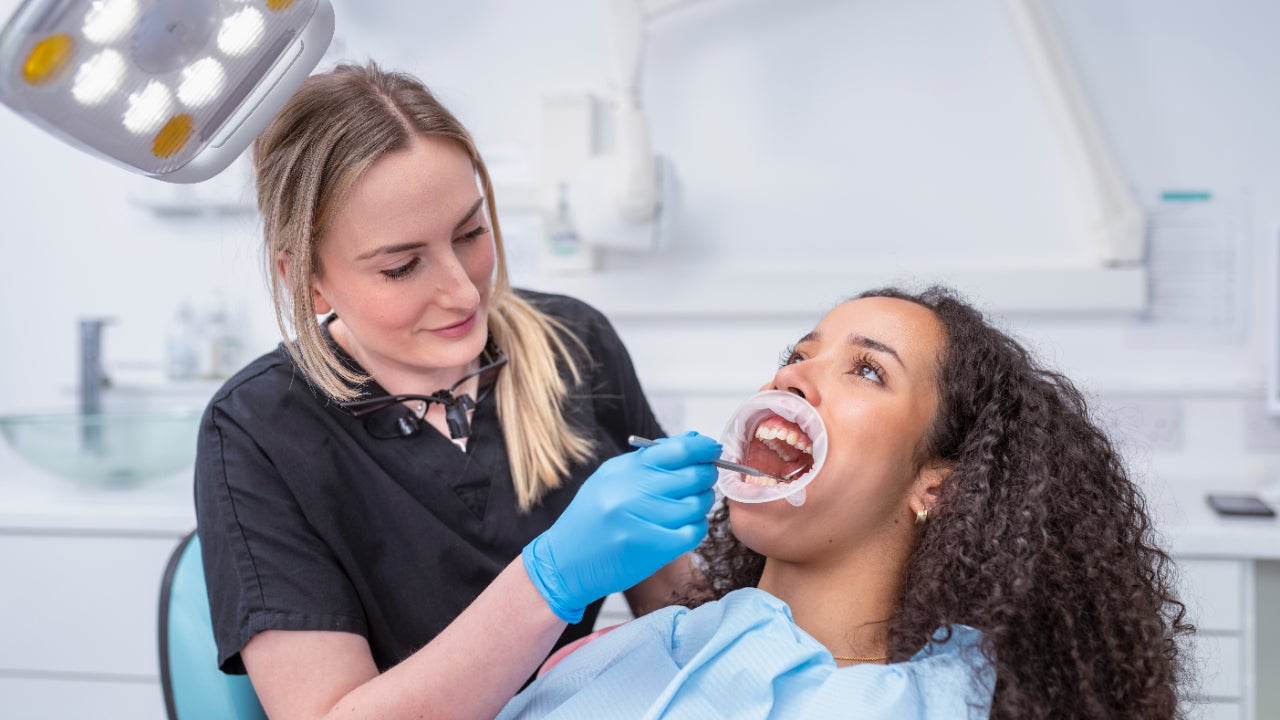Monty Rakusen/Getty Images
Key takeaways
- A dental loan is a type of unsecured personal loan designed to cover dental expenses.
- This form of financing often has a more competitive APR than most credit cards.
- It’s possible to secure funding with bad credit, but you’ll likely pay more interest and fees.
- Before taking out a dental loan, compare your options and explore alternatives to find the best fit.
Dental work can be expensive, but putting it off can cost you more in the long run. If you’re facing a major dental procedure but are strapped for cash, consider taking out a dental loan. This is typically a personal loan used specifically to cover expenses related to dental care.
This financing option typically has a lower average interest rate than a credit card — 12.64 percent versus 20.13 percent, respectively. However, it may be worth it to explore alternatives to avoid any damage to your credit. If you end up needing a loan, get quotes from multiple lenders to ensure you get the most cost-effective plan for your dental work.
What is a dental loan?
A dental loan is a type of installment loan used to pay for dental expenses. Like other personal loans, they have predictable monthly payments and fixed interest rates. They’re also usually unsecured, meaning you won’t have to pledge any collateral (like a car or home).
You can apply for dental loans through a bank, credit union, online lender or marketplace like Bankrate. If you have strong credit and a high income, you may qualify for the lowest rates, which start below 7 percent. However, bad credit personal loan rates may be as high as 35.99 percent.
Did you know?
If you don’t have the cash to pay for your dental work, you’re not alone. A recent Gallup poll found that 12 percent of U.S. adults (or about 31 million Americans) had to borrow money to pay for healthcare expenses. To avoid being part of this statistic, consider beefing up your emergency savings account.
How much do common dental procedures cost?
What you’ll pay out of pocket for a dental procedure depends on your insurance coverage — if you have it. Here’s what to expect for common dental procedures, according to Care Credit, but remember that your costs may vary.
| Dental procedure | Cost range |
|---|---|
| Basic cleaning, including polish | $126 to $968 |
| X-rays | $55 to $466 |
| Amalgam filling (per tooth) | $139 |
| Composite or ionomer filling (per tooth) | $152 to $226 |
| Dental crown (per tooth) | $697 to $1,399 |
| Tooth extraction | $177 to $3,340 |
| Root canal | $984 to $1,337 |
| Dental implants | $860 to $29,980 |
Compare dental loans
To get the best rates on a dental loan, you should get quotes from at least three lenders. Try to choose lenders that allow for prequalification to avoid unnecessary damage to your credit score. You can get prequalified with several lenders at once with Bankrate by entering basic personal and financial information.
Here’s a look at the rates and terms offered by a few popular lenders:
| Lender | APR range | Repayment term | Minimum credit score | Loan amounts |
|---|---|---|---|---|
| Best Egg | 6.99%-35.99% | 36–60 months | 600 | $2,000–$50,000 |
| LightStream | 6.49%-25.14% | 24–240 months | 660 | $5,000–$100,000 |
| Upstart | 6.60%-35.99% | 36 or 60 months | 300 | $1,000–$50,000 |
| SoFi | 8.99%-35.49% | 24–84 months | 300 | $5,000–$100,000 |
| Avant | 9.95%-35.99% | 24–60 months | 550 | $2,000–$35,000 |
How to get a dental loan
Applying for a personal loan to cover dental expenses involves comparing your options to get the best deal, gathering the necessary documents and then submitting a formal application once you’ve found a lender that best matches your borrowing needs.
- Research lenders and prequalify. Research lenders and compare personal loan rates and terms. Prequalifying will give you an estimate of your loan amount and interest rate.
- Formally apply with a lender. After you choose a lender, the next step is to fill out a loan application online or in person. You’ll need to know the amount you need to borrow and choose your desired loan term.
- Wait for approval. Once you’ve applied, the lender will review your application and decide whether to lend you money. Although approval times vary, you can sometimes be approved — and funded — the same business day you apply.
- Review and sign your loan agreement. If you’re approved, a lender will send you a loan agreement. Review the document carefully before you sign it. Afterward, the lender will issue your funds, usually as an ACH transfer directly to your bank account.
Dental loan alternatives
When determining how to pay for dental work, it makes sense to see how you can lower or mitigate the cost before resorting to financing.
Bottom line
Dental work can be pricey. A personal loan is one solution to get the funding you need, but before applying, consider alternative financing options, such as in-house financing and a 0 percent APR medical credit card. And don’t underestimate the importance of getting quotes from multiple dental providers to confirm that you’re getting a fair price.
If you decide that a personal loan is your best option for dental costs, compare multiple lenders. Review their interest rates, loan amounts, loan terms and all associated fees before choosing your lender.
Why we ask for feedback
Your feedback helps us improve our content and services. It takes less than a minute to
complete.
Your responses are anonymous and will only be used for improving our website.
Help us improve our content
Read the full article here
















